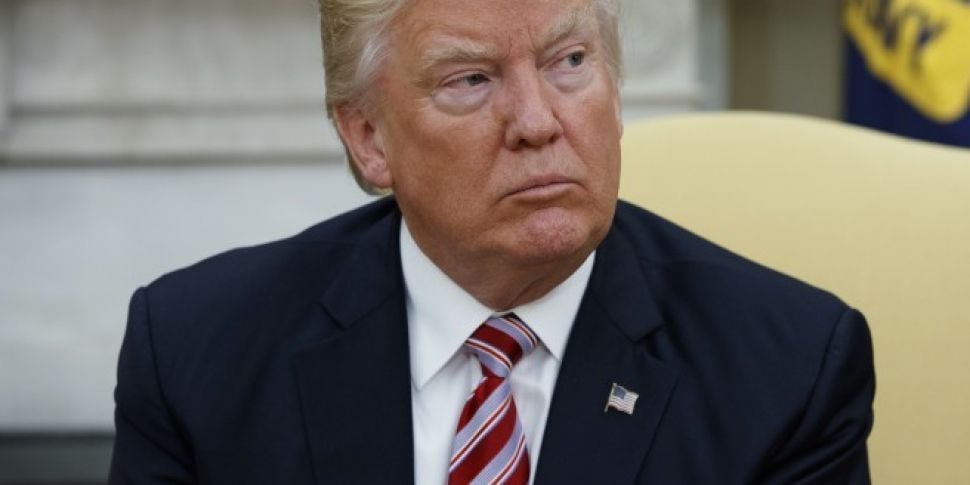As members of Fine Gael select their new leader in Ireland and British voters prepare for the snap election, it’s easy to forget American politics continue after November every four years.
Governing America takes more than the Oval Office. It really comes down to local and state races in every corner of the country. Just moments after Donald Trump became President of the United States, both Democrats and Republicans had eyes turned to the mid-term 2018 election.
In fact, political analysts are thinking about more immediate changes.
Several special elections held in the next few weeks in the states of Montana, Georgia, South Carolina, and California could be signs of what’s to come. Democrats hope President Trump’s scandals involving Russian influence will poison Republican candidates.
Post-Trump
After the inauguration, President Trump tapped several Republican members of Congress to his administration. Under the Constitution, members of the U.S. House who resign mid-term must be replaced in special elections.
Democrats probably won’t make big gains, but they could garner momentum as they head into more races next year. Republicans have a lot to lose and not much to gain besides pride. In case you didn’t know, Donald Trump likes to win, so if Republicans hold onto their seats, expect some tweets.
On Thursday, voters in Montana chose Republican Greg Gianforte (now charged with misdemeanor assault for allegedly hitting a Guardian reporter) to replace Republican Ryan Zinke, now the Secretary of the Interior.
The chances of Democrat Rob Quist, a folk musician with Bernie Sanders-like populism, were never high. Donald Trump won Montana 20 points ahead of Hillary Clinton last November. Zinke won reelection by 16%.
Gianforte
won by only 7% of the vote thanks to heavy support for Quist in Montana’s larger towns like Missoula and
Butte, the most Irish town in America. It’s worth noting, most votes were cast before the assault charges, so it’s unclear how big of an impact that story had. Gianforte used his celebration party as a chance to apologize.
While most states select their representatives based on geographic districts, Montana’s small population means the entire state votes for one member of the U.S. House.
What made this race unusual (despite the body-slam) is the amount of money spent:
$17 million by some estimates, much of the money from outside groups supporting Gianforte. In a series of advertisements, both candidates shot guns at
computers and
televisions. Republicans simply couldn’t lose this race. They managed to do that.
Georgia
In June, more races will really be the bell-weathers for the Trump impact on the 2018 races.
Take Georgia’s 6th Congressional District for example. By all means, Republicans should win this race. Former Speaker of the House Newt Gingrich held that seat in suburban Atlanta for 20 years. The district hasn’t elected a Democrat since 1965 and Republican Rep. Tom Price, who resigned to take over the U.S. Department of Health and Human Services, won his reelection with 61% of the vote in November.
That could change quickly on the 20th of June. The Republican candidate to replace Price is losing in the most recent polls. Democrat Jim Ossoff leads his Republican rival, former Georgia Secretary of State Karen Handel 51% to 44% according to a
Survey USA/WXIA-TV poll released this week. Others have the race in a dead heat.
Handel distanced herself from President Trump in the earlier rounds of voting, but embraced the Republican president’s administration headed into the final vote.
There are a number of factors that could play into the Georgia race, including turnout. Special elections typically draw very few voters, and most of those voters are highly passionate about a particular candidate.
Right now, Democrats are focused on registering new voters. They want to put Republicans on edge. So far, it seems to be working. Republican Vice President Mike Pence plans to campaign for Handel. The party also sent emails to Republicans in other states asking for donations.
Republicans are nervous. Some are preparing for the real possibility they could lose a seat in the House that heavily favours conservative candidates. Some blame the repeated investigations into President Trump’s administration and campaign. Others point to a Handel as a less-than-ideal candidate.
Why do these elections matter?
Why does anyone care about these special races? They won’t shift the balance of power in Washington, but these elections matter. The word you hear a lot about in American politics is momentum - the belief that winning elections bring more wins.
There’s some truth to that. Democrats could use these wins to seek fundraising dollars and they may discover a winning message or strategy.
The mid-term elections will be critical for Democrats, who hold 45 fewer seats in the House of Representatives. It will also be imperative that Democrats win back several state legislatures and governorships lost during the Obama Era.
For Republicans, 2018 is the line in the sand. Maintaining control of the U.S. House and Senate will provide a mandate for President Trump’s agenda. Right now, it is more-or-less stalled amid blocked executive orders and the ongoing Russian investigation.
Some special elections won’t involve shocking results. On the 6th of June, voters in a Los Angeles suburb will decide between two Democrats. That’s thanks to the two-tier runoff system where the top two vote-getters move onto the second round.
The Republican is expected to win in a 20th of June special election in South Carolina’s 5th District to replace Mick Mulvaney, President Trump’s Director of the Office of Management and Budget. The district, which straddles the North Carolina border and includes several suburbs of the city of Charlotte is considered safe for Republicans.
Still, the party isn’t taking any chances, buying ads and conducting polling in a race that would typically be an easy win.
Conservative Republican Ralph Norman beat our a centrist in his party’s primary earlier this month. Unlike Karen Handel’s primary race in Georgia,
Norman did not shy away from the President. Democrat Archie Parnell hopes to capitalize on that, linking Norman to the President’s policies and perhaps his scandals.
The ruthless Underwood once said, “Even Achilles was only as strong as his heel.”
Democrats know they face uphill challenges in these early battles of the mid-term elections. If they can chip away at the Republicans’ heels this summer, that could make a big difference when voters across America select their representatives next year.









